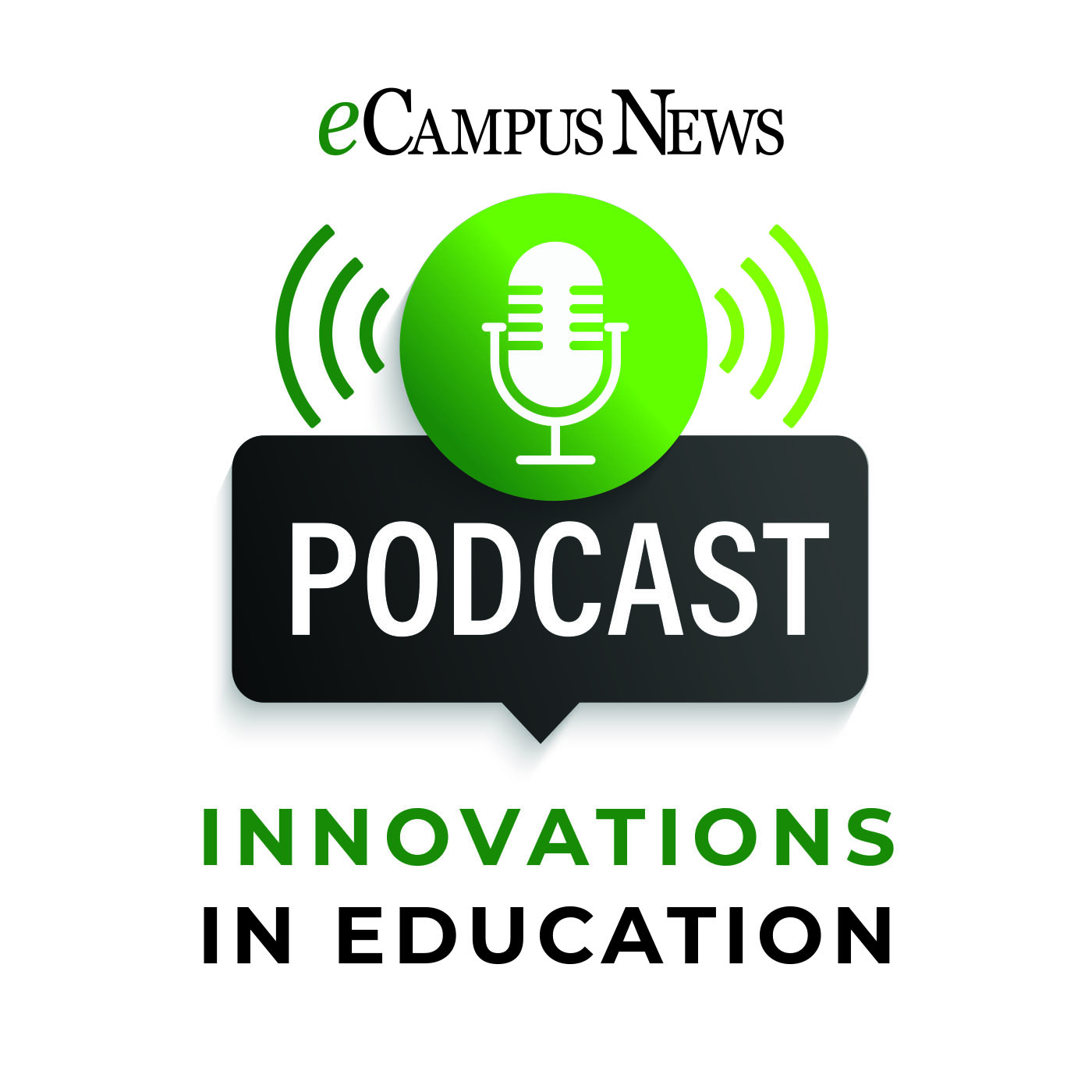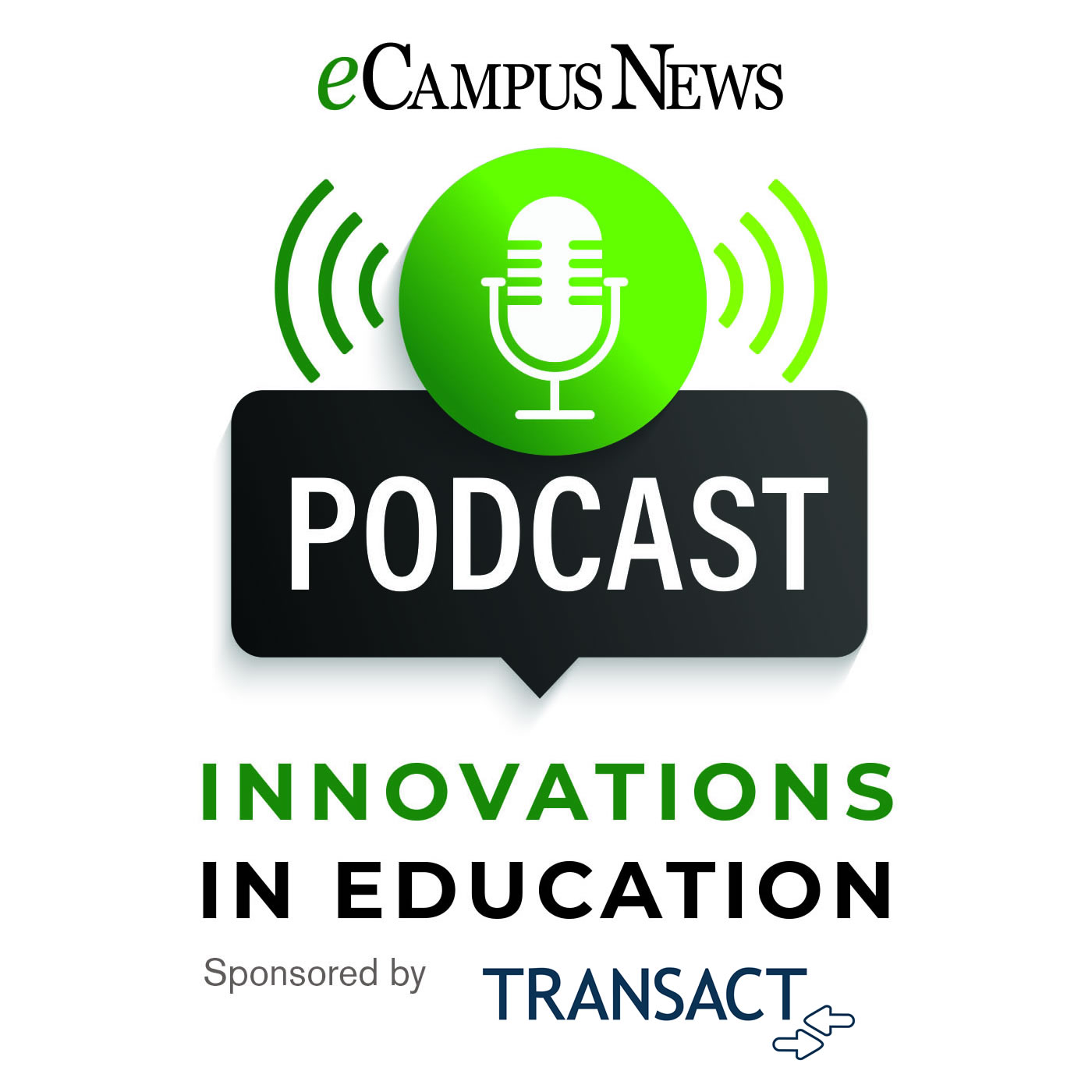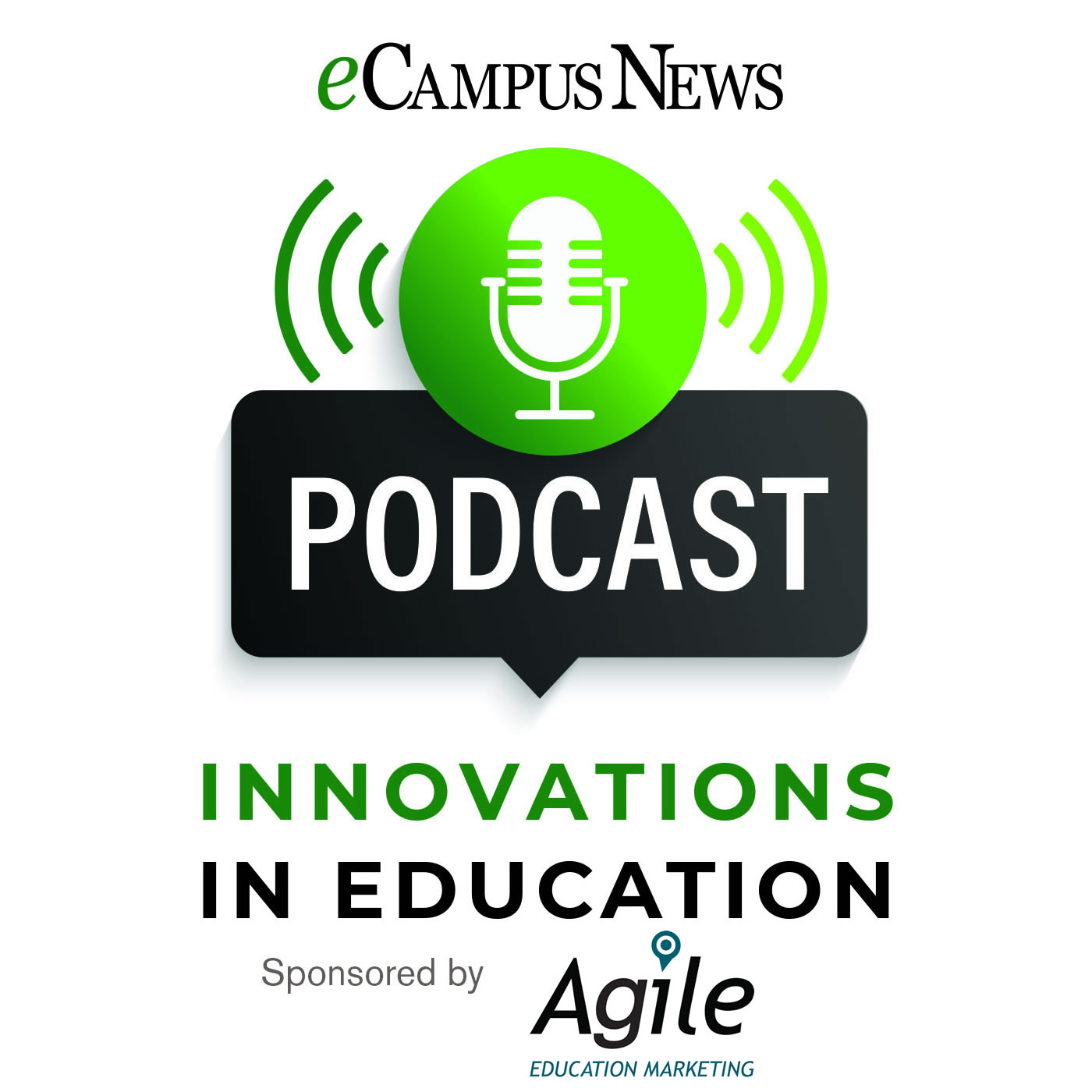Episode Transcript
Kevin Hogan
All right, Verlin always great to catch up with you. I appreciate it and appreciate your insights and knowledge and what is as we were mentioning before, we started recording just an interesting time, right?
Verlan Stephens
That it is for sure you know the the rate of change is faster than ever, whether it's technology, whether it is changes in the government, the administration. We're just seeing this massive continued increase in the rate of change.
Kevin Hogan
Yeah. You know, as part of that because of just kind of the overwhelming aspects of this, we're going to break this conversation down into two-part series and this first part, I really just want to try to pin you down and this is going to be more difficult for you than for me, but trying to understand this new landscape of what the HEA policy change. Pages of what those immediate impacts are, and then in Part 2, maybe we can talk a little bit about some of the strategies that our readers and listeners and your clients can do to pivot and adjust almost on the daily, so. Maybe we can. Start first kind of talking about the dramatic policy shifts. Within the new administration's approach to the Department of Education, you've been around for over 35 years and educated data and marketing. In your experience, how significant are these changes compared to previous policy shifts you've seen in the past?
Verlan Stephens
But they're massive. There's just no doubt. You know, we have obviously seen with different administrations. Tweaks and, you know priorities that they want to enforce. And so, there's been this, there's always some degree of change and influence that comes in. So that part is is no different. The thing that's different is the scale. One of your first moves is to cut the staffing at the Department of Education in half. And and and in some of the areas it was, it's unimaginably large. So you know we deal a lot with our data with NCS National Center for Education Statistics. And their staff got cut from 100 to 4.
Kevin Hogan
Humble.
Verlan Stephens
There's been some a few little inside statements that ohh yeah, we're going to be able to carry on our mission. I don't know how you do.
Speaker
Yeah.
Verlan Stephens
So many people were just left reeling with what are the gonna be these impacts and and you know, we clearly in our business we're data business we're very dependent on that and you know we do already a lot of state level collection and so immediately we focused a lot of effort on what can we be doing to gather more information at the state level and. And expand our state level data classes and we're reasonably confident for our business. That we can do that the States have always been the primary source anyway. Yeah, it gets filtered and normalized through the through the feds. And so it's it's super helpful to have somebody else doing the data normalization and standardization and the 27 phone calls that it takes to get the state to to actually do what they say they're going to do. And it's nice to have somebody else do that, right? Can't we do it? Yes. Yeah. You know, we're likely to see some increase in pricing and things because of that additional effort. So huge changes certainly is going to affect our business. We think we can. We're in a unique position to kind of weather that. But I think the bigger one. It's so hard to map some kind of strategy. So we have started to see and we started to see this even a couple of years ago. A shift towards more workforce readiness. There's there has been a disconnect for some time between students that are graduating and the skills that. The workforce needs. Absolutely. It's been there and there's been some movement to address that, whether it is at the high school level. The one, of course we track personnel and we look at trends and one of the big trends we saw coming up with the number of votech type instructors and Votech leadership. Things that shift started a couple of years ago, and we've seen a continued trend there and certainly there was a lot of noise made by the administration of continuing to focus on workforce development. Though we're there.
Kevin Hogan
I mean, I see a lot of conversations surrounding the the rise of micro credentials and certification, not only just in kind of that coding or computer science field, but in other curricula as well.
Verlan Stephens
Right, I think. Absolutely. So I sit on the advisory committee for the local Community College for their computer science and. Vis programs and. It's interesting that they formed this advisory committee, so we have a number of industry folks that help advise them as to where we see industry trends moving and and just like you said, there's, they're actually seeing a real increase in the number of students and the the amount of interest and they have a number of programs that overlap the high schools. And so they have. Credentialing, where you graduate high school with, you know either of these micro credentials or credentialing or even a an associates degree at the same time. And they've seen a real rise in the the popularity there because they think. That's perceived as being more directly aligned with workforce, opportunity and workforce needs. So we are certainly seeing increase there. The challenges come when you try and match that up of, OK, we think workforce readiness is where people can focus and that's where an opportunity is coming.
Kevin Hogan
Yes.
Verlan Stephens
And then you see the budget gets gets proposed and just got approved by the the House that slashes Pell grants for any part time students. And raises the number of credit hours for. Full time students. And will likely impact 4 to 500,000 students. You. Know like. I thought we were focusing on workforce readiness. And then suddenly, we cut the knees out from underneath it. And I don't. That's the inconsistencies that are so hard to piece together. If you have a strategy, implement the strategy.
Kevin Hogan
Yeah. The other aspect of this too is is we're we're talking about a shift towards state level controls well, right. In terms of this, which is well then fragment the the regulatory landscape that that you're talking about, how do you suggested vendors adapt their offerings to these various shifts? I mean, can you have any examples?
Verlan Stephens
About how Edtech companies can reposition themselves in this space, I I think one of the things they're going to have to do and and and I was just thinking about this morning, I brought up the advisory committee that I said on the, the one party that's not represented there. Is any vendors? So I think that that's an area where I think there's really an opportunity that we're seeing more and more of these advisory committees that's starting to be a a pretty normal type thing, yeah, and have vendors participating in that. So they're sharing the same conversations that the faculty and staff is hearing. We're hearing from the industry and trying to then say ohh we've got solutions for some of those or we need to develop solutions for those. Yeah. And I think that one of the biggest challenges is because a lot of higher Ed curriculum is already under state control. You know, particularly for public institutions, so that you know, this Community College is part of the the larger Community College system. That the problem they have is. They're used to a pace that is so much slower than what we've seen traditional. We were talking at the last advisory Committee meeting where they're trying to get a new class approved, one class, not an entire program, one class and it's going to take them two years.
Speaker
Shoot.
Verlan Stephens
Teachers to draft that class, get it vetted. Get it approved, get it implemented and looking at a two year window. And one of the things all the advisory people were pushing for is. Really starting to ramp up what they're doing with AI. We are seeing such an impact on employee productivity with those tools. And yet. They want to teach computer science in the way it was taught four years ago when I was. Going to school? They still want it. We had one of the instructors said. Well, I forced all my students to submit all their work. Long hand. I want to make sure they're not using AI to generate code. And like I'm going exactly the opposite end of that if I have. Staff that can generate 234 times the code by using tools like AI, why wouldn't I as an employer, want that? And yet they've never had to move. They're teaching programming the same way it was taught 40 years ago. We're not programming. Today, the way we were 40 years ago.
Kevin Hogan
Right. I mean that sounds like the biggest, most critical mistake that institutions can be making right now as they respond to these policy shifts, right? Reminds me that old TV show, the paper. Chase. It's just kind of like still stuck in these kind of antiquated. That's the way we've always done it things and that what we saw after COVID that's that just doesn't work anymore.
Verlan Stephens
Yeah. And I think that's as much as some of this. Unrest with the administration and things is causing challenges. I think the the bigger challenge, frankly they're they're facing is.
Speaker
Yes.
Kevin Hogan
How do we?
Verlan Stephens
Adapt to this new rate of change. And and frankly, I think that's the bigger barrier in the end because some of the rest of this will get sorted out one way or the other, right? You know, they're they're being, they're out seeking more private donations. There's more things coming in various ways there. So most of that. Part of it will sort of get. Sort of one way or the other what they're struggling with right now and you know, state control, not state control, the the Feds have never set curricula so that parts not changing, but the process where it takes them two years to get an A new class approved. That's not the rate of change we're seeing today.
Kevin Hogan
Yeah, those days are gone.
Verlan Stephens
And so I think ultimately that's going to become one of the biggest challenges and it's this challenge of how do we bridge. The workforce needs versus the ability of post secondary education. How do they become? Responsive enough to supply that workforce training that right now, they're struggling to do.
Kevin Hogan
Do you see a distinction between when you, when you talk about higher institutions? I mean a lot of this conversation I remember again during COVID 2 was going to involve the rise of the community colleges in terms of that workforce development and at a niche regional level, like real opportunities have changed between. Relationships. Between specific curricular being developed, say, for a. Some place in in the middle of Michigan or Indiana who has a big manufacturing sector around a particular type of vertical that they could start to tie that stuff in and make it more quickly there. I mean, are those the sort of potential opportunities, I guess we could? Call them instead of challenge.
Verlan Stephens
No, and. And I do think they are because I do think that there's certainly, you know, whether it is around robotics and the manufacturing sense or whether it is. Is in development or other things? Software development. Yeah, I think that is 1 area where the Community College system has that ability to be regionally focused and say what are the needs of our employers? We're they're not trying to address the nationwide need. They're trying to save the people in our community. How can we produce workforce ready individuals? How can we help people get good paying jobs in our community? And I think they have that opportunity to have these advisory committees that are pretty focused on this is the work we're doing in our space here. And you know the the advisory committee I'm on, Denver has always had it both some telecommunications folks, one of the companies represented, we've got one is geophysics and. And oil industry and and so they represent the local employees or employers. Yeah, it's a an interesting opportunity there to allow them to, you know, start to address exactly that. What do you guys need in terms of employees? Their ability to respond to it, that's still a challenge. It's just they're not geared towards that rapid rate of change.
Kevin Hogan
Well, I think I'm going to stop you there because I like the way the conversation is, is starting to arc here. I think we we kind of went away from challenges and are starting to look more towards the opportunities because there does seem to be a way in. In which our readers, our listeners, your clients, can pivot in terms of looking to strategic implications and and future planning for stuff and how these leaders can think about how to prepare for what's coming. So we'll save that for the next episode coming in, but I appreciate the the time we took to set the stage here.
Verlan Stephens
Absolutely. And you know, I think we'll come back and there's some we are starting to see some opportunities and things there. So I think. Or some some positive things to talk about and look at there the things that companies are going to have to do is just like what I do, I I start my morning with an hour worth of reading, trying to figure out what's the latest court challenges. What's that gonna mean, where what's coming through Congress and trying to. If you can read the tea leaves a little bit. It's a pretty tough. Problem to read those. But I think that's part of where companies are gonna have to invest energy around that. That's going to be one of the challenges is this is not a a set landscape where they say, boy, we're going to focus on teacher education for the next four years. And then you're like, great, we know how to then help connect the dots. We're going to we see the funding coming in. We've got, we're going to have to have solutions and the buyers in the middle are going. To put those. Things together. It's not going to be.
Kevin Hogan
That simple? Absolutely. Well, I'll encourage all of our listeners to wait for for the next episode where we'll really dive into the weeds. Thanks for.
Verlan Stephens
Alright.


